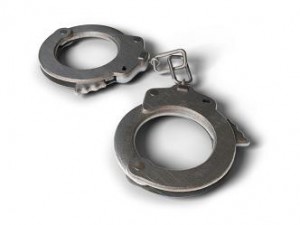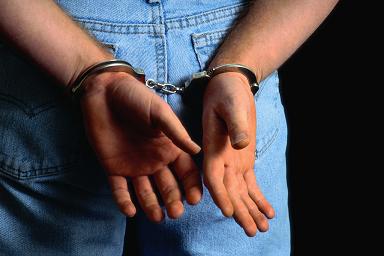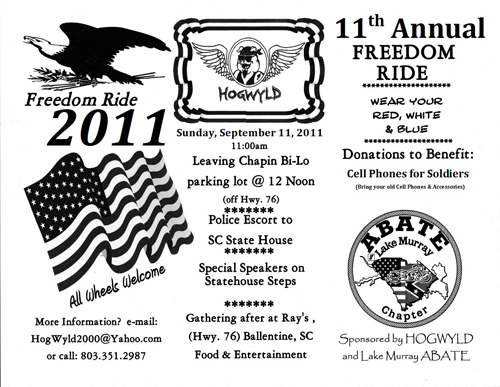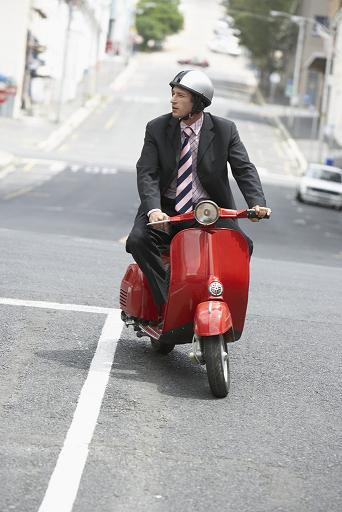 As Columbia auto accident attorneys, we deal with the aftermath of auto accidents daily. Often, our cases depend on credible witnesses, but they’re not always available. Sometimes witnesses leave the scene because they don’t know what to do. If you witness an accident with no one else around, follow these tips:
As Columbia auto accident attorneys, we deal with the aftermath of auto accidents daily. Often, our cases depend on credible witnesses, but they’re not always available. Sometimes witnesses leave the scene because they don’t know what to do. If you witness an accident with no one else around, follow these tips:
Stay calm.
No matter what you see or hear, you need to remain calm. You may make the difference between life and death for the parties involved, and you need to stay alert and clearheaded.
Call 911, and make your way to the scene.
Your first priority is to the victims, so get to the scene as quickly as possible. If you’re driving, make sure your car is out of the way, and turn on your emergency flashers to help the police find you. Call 911 as you walk over so help is on the way. The 911 operator will likely keep you on the line and help you stay calm and aid the victims until the police and / or ambulance arrive.
If the accident is a hit and run, the at-fault driver may attempt to flee the scene. Read the license plate number and a description of the car to the operator.
If victims are milling around, ask them to sit and wait for help. You may need to help them calm down, so speak with them slowly, with a soothing voice. They may be in shock or frightened.
Assess the scene for possible danger.
Quickly survey the scene for immediate danger to yourself and to the victims. For example, if you witness a car accident and one of the cars is on fire, you may need to clear the area around it. Tell the 911 operator what you see, and he or she will guide you.
Approach the victims carefully.
Talk to the victims as you approach them. Quickly assess their injuries, and alert the operator. He or she will tell you what to do. If you have a non-responsive victim, the operator may ask if you wish to try CPR. South Carolina’s Good Samaritan law absolves you from civil damages if you render emergency care, gratuitously and in good faith, at the scene of an accident.
Try not to disturb any evidence.
It can be difficult to know what is evidence and what isn’t, so just do your best to disturb as little as possible. Certainly, if a car is overturned, you’ll want to look inside to see who is in there, but just be careful to touch and move as few things as you can.
When the police arrive, tell them everything you remember.
You’re a vital link to the case and to the outcome of any charges that might be filed. Tell the police as much as you can, but don’t speculate or assume anything. Stick to the facts, as you know them.
For more information on South Carolina law, visit our Resources page.
 According to the South Carolina Attorney General’s office, more than 36,000 domestic violence incidents are reported every year, and at least 30 women are killed every year by their partners.
According to the South Carolina Attorney General’s office, more than 36,000 domestic violence incidents are reported every year, and at least 30 women are killed every year by their partners.
South Carolina law defines criminal domestic violence as offering, attempting to cause, or causing “physical harm or injury to a person’s own household member with apparent present ability under circumstances reasonably creating fear of imminent peril.” Household members are defined as “a spouse, a former spouse, persons who have a child in common, or a male and female who are cohabiting or formerly have cohabited.”
In addition, South Carolina elevates criminal domestic violence to the crime of “criminal domestic violence of a high and aggravated nature” if a deadly weapon is involved, the incident results in serious bodily injury, or the incident “reasonably causes a person to fear serious bodily injury or death.”
If convicted of criminal domestic violence, the first and second offenses are misdemeanors and result in fines of $1,000 up to $5,000 and jail time ranging from 30 days to one year. If the offender completes a domestic-violence treatment program, these penalties may be reduced or suspended—except for the mandatory minimum thirty-day jail sentence on a second offense.
A third conviction of criminal domestic violence is a felony, and the offender must be jailed for a minimum of one year. Any conviction in another state of a crime similar to criminal domestic violence of a high and aggravated nature within the preceding 10 years counts as a prior offense in South Carolina. If you have previous domestic violence conviction, you need a South Carolina criminal defense lawyer to assist you in reducing the impact of that offense.
Any conviction in South Carolina of criminal domestic violence of a high and aggravated nature is a felony punishable by a minimum of one year in jail.
Law enforcement officers have the right to execute a warrantless search and arrest if they have probable cause to believe the person is committing or has just committed criminal domestic violence. Violating the terms of an order of protection related to domestic violence, including an order issued in another state, is a misdemeanor and will result in jail time and a fine.
Statutes governing criminal domestic violence can be found at SCStateHouse.gov.
Whether you live in Hanahan, Summerville, or North Charleston, if you have been accused of criminal domestic violence and need legal representation by an experienced South Carolina criminal defense attorney, contact us today.
 The penalties for South Carolina drug charges are stiff, and you want to be sure you have a good drug possession lawyer who will be aggressive in protecting your rights and defending you.
The penalties for South Carolina drug charges are stiff, and you want to be sure you have a good drug possession lawyer who will be aggressive in protecting your rights and defending you.
If you read no further on this post, know that if you’re arrested, you need to retain a drug charge attorney as soon as possible; every moment you go without a lawyer is time wasted in preparing your defense.
Unlike other states, even simple possession of a small amount of marijuana carries a high fine and the possibility of jail time, and that charge can negatively affect your future. Drug charges in South Carolina can be complicated with several possible enhancements, so you’ll want to understand what you may be facing.
You can be charged with actual possession and/or constructive possession.
South Carolina has two types of possession charges. Actual possession occurs when the drugs are found in the actual physical custody of the person. Constructive possession occurs when the person charged has dominion or control over the drugs or the location where the drugs were found, such as under your car seat or in your garage.
Possession of drug paraphernalia is a separate charge.
Paraphernalia is defined by state law as “any instrument, device, article, or contrivance used, designed for use, or intended for use in ingesting, smoking, administering, manufacturing, or preparing a controlled substance…” Beware: police officers and prosecutors can be very creative with this one.
Possession with the intent to distribute drugs can involve any quantity of drugs.
Regardless of how small the quantity may be, a possession with intent to distribute charge hinges upon the state providing that the defendant knowingly possessed a controlled substance with the intent to distribute it. The intent element can be proven by circumstantial evidence such as if the drugs were packaged and how they were packaged.
Where you are at the time of arrest matters.
If you are arrested for distribution of a controlled substance and are within a ½ mile radius of a school or public playground or park, you may face an additional criminal charge. Distribution of a controlled substance within proximity of a school is a felony charge and can potentially carry a ten year prison sentence.
A gun or knife can make things worse.
If you are in possession of a firearm or knife during the commission of, or attempt to commit, a violent crime you may face an additional criminal charge. Under South Carolina law, many common drug offenses are considered violent crimes. The penalty for this charge is potentially a 5 year mandatory sentence that a judge may order to run after the sentence for the underlying drug charge is served.
We’ve said it once, but it bears repeating: if you’re arrested on drug charges, call a South Carolina drug possession attorney immediately.
 South Carolina law allows for expungement, or the destruction of all criminal records related to a single offense, under certain circumstances. As South Carolina criminal defense attorneys, we regularly see records expunged, and we always encourage our clients to apply for it whenever possible.
South Carolina law allows for expungement, or the destruction of all criminal records related to a single offense, under certain circumstances. As South Carolina criminal defense attorneys, we regularly see records expunged, and we always encourage our clients to apply for it whenever possible.
Dismissal of case or not guilty verdict
Under the law, if a case is dismissed or if a defendant is found not guilty, all the records related to the arrest and booking are destroyed. This includes mug shots, fingerprints, and jail records.
First offense conviction in municipal or magistrate’s court
Three years after conviction of a first offense in a municipal or magistrate’s court, an offender may ask for expungement of arrest and trial records. However, if the offense involved domestic violence, motor vehicle, or fish, game, and watercraft, an expungement is not allowed. The defendant must have no other conviction during the three-year period, and expungement is allowed only once.
First-offense simple marijuana possession
If a first-time marijuana-possession offender is sentenced to a “conditional discharge,” he or she may ask for expungement after completing all court requirements. This is for simple possession offenses only, and after expungement, the offender does not have to admit or acknowledge the offense to anyone, including law enforcement or the judiciary. A good marijuana lawyer can ensure your record is expunged if you’re eligible or minimize the damage of your possession charges if you’re not.
Non-felonious check fraud
If a defendant has no other convictions in the year after a first-offense conviction of check fraud, he or she may apply for expungement. However, this does not apply to felonious check fraud, which is drawing any check or draft valued over $5,000, and only one conviction may be expunged.
Successful pre-trial intervention for first-time offenders
For first-time, non-violent offenders, South Carolina law provides for pre-trial intervention, a diversion and restoration program that may include payment of restitution or performing community service. After the pre-trial intervention has been completed, the offender may petition the court for an expungement order. This will effectively erase the offense, and the person does not have to acknowledge the offense later, even if under oath in court.
When South Carolina criminal records are expunged, no evidence remains of the offense, and often defendants cannot be charged with making a false statement if they do not acknowledge or admit the expunged offense.
To learn more about expungement of criminal records in South Carolina, click here.
Image above taken from the ABATE of SC website.
Sponsored by HOGWYLD and Lake Murray ABATE, the 11th Annual Freedom Ride takes place Sunday, September 11, 2011 at 11 a.m.
At noon, the group will leave the parking lot of Chaplin Bi-Lo off Highway 76, and there will be a police escort to the South Carolina State House to listen to special speakers on the Statehouse steps. After the speeches, the group will ride to Ray’s in Ballentine, SC for food and entertainment. Participants are requested to wear their red, white, and blue, and to bring any old cell phones and accessories to benefit Cell Phones for Soldiers.
ABATE of South Carolina, Inc. is the organization that protects motorcyclist’s rights in South Carolina. In June of 1980, ABATE members succeeded in protecting bikers’ freedom of choice when South Carolina’s mandatory helmet law was amended to allow adults to decide for themselves whether to wear helmets.
ABATE stands for A Brotherhood Against Totalitarian Enactments, and it defends liberty. It does not oppose safety devices, but it does oppose laws that mandate using these devices. According to its constitution, “the purpose of ABATE of South Carolina is to form a not-for-profit association at the state level to protect the rights and liberties of motorcyclists, and promote motorcycle awareness and voluntary motorcycle rider training.”
For more information, email HogWyld@yahoo.com, or call 803.351.2987. ABATE SC’s website is www.abatesc.com.
Lane splitting is riding your bike between lanes, including maneuvering between lanes of slow or stopped traffic. It’s also called filtering, stripe riding, and white lining.
Laws vary, but generally, lane splitting is not allowed in most areas of the U.S., with the exception of California. Some states do not specifically ban lane splitting, but have other laws in place that effectively condone or forbid it. South Carolina specifically prohibits lane splitting. Motorcycles are entitled to a full lane just as cars are, and motorcycles can travel two abreast in a single lane. Check with law enforcement in your state.
Some of the dangers of lane splitting include . . .
- Car doors opening suddenly, causing loss of control.
- Cars changing lanes without warning or signals.
- Hands, dogs, or objects coming out of windows.
- Drivers of larger vehicles not seeing you.
- Drivers not seeing you at intersections and turning.
If you split lanes, most of these dangers can be avoided by being aware of cars around you, adjusting your speed to conditions, staying out of drivers’ blind spots, wearing bright clothing, and making noise when you’re moving. When you stop, stay in front or behind a car, and always make sure drivers can easily see you. At intersections, always assume a car will turn and stay away from the side. Remember, cars cannot see you as easily as you can see them.
While drivers and law enforcement consider lane splitting dangerous (we do too), proponents of lane splitting say that it reduces rear-end collisions for bikes and reduces traffic congestion. Opponents say it is dangerous and doesn’t offer any real congestion relief because of the low numbers of motorcycles. Unfortunately, in case of accident, riders are often deemed at fault if the crash occurs while lane splitting, even in areas where it’s legal.
Do you split lanes, and why or why not?
 Summertime typically evokes happy memories of cookouts, boating, family vacations and fun in the sun. While sunburns, jelly fish stings and broken air conditioning units represent some of the not-so-fun summer experiences, DUI arrests fall into their own category of a summer nightmare.
Summertime typically evokes happy memories of cookouts, boating, family vacations and fun in the sun. While sunburns, jelly fish stings and broken air conditioning units represent some of the not-so-fun summer experiences, DUI arrests fall into their own category of a summer nightmare.
In a recent decision by the South Carolina Court of Appeals, State v. Herchek, the issue before the Court was whether police are required to videotape a suspected DUI defendant’s conduct for the required 20-minute pre-breath test period if the defendant refuses to take the breath test. While the opinion rendered in this case is unpublished, and therefore can not be cited or used to set precedent, it nevertheless provides important guidance on this issue.
Mr. Herchek was detained under suspicion of driving under the influence and refused to submit to a breath test. While it is required by South Carolina Statute § 56-5-2953, to record a Defendant’s conduct at the breath test site for a 20-minute observation period, the officer failed to do so, as it was not required under South Carolina Law Enforcement Division (SLED) policy. The Magistrate in Herchek’s case, therefore, dismissed the DUI charge on this ground.
The State appealed to the Circuit Court, which upheld the Magistrate’s dismissal. The State then appealed the Circuit Court’s ruling to the Court of Appeals, where the dismissal was again affirmed.
It is worth noting that as of May 2011, SLED policy had not changed in light of the Court of Appeals recent Opinion. Officers are not required to record the observation period when the driver refuses the breath test; however, many are recording the full 20 minutes, as required by South Carolina law.
One of the main focuses of the Uricchio Law Firm is criminal defense. We handle DUI cases in Charleston, Berkeley and Dorchester counties. For more information about Uricchio Law Firm and our criminal defense practice, please click here.
We would like to thank Bobby Frederick, an attorney in Myrtle Beach, for bringing this case to our attention through his excellent criminal defense blog. To read his post of this case, please click here.
What is your opinion of this South Carolina Law? We want to know.
Motorcycle recalls beginning in June 2011 are listed below. Manufacturers will notify owners of affected bikes, but if you have not been notified, or if you’re not sure whether your motorcycle is on the recall list, customer service numbers are listed.
Image to the left of a 2011 KTM 450 EXC, taken from KTM.com.
KTM / Husaberg
KTM has recalled over 1,200 KTM and Husaberg motorcycles manufactured from November 2009 through November 2010. Some handlebar clamps were not heat treated correctly, and they can develop cracks that allow the handlebars to move unexpectedly, causing loss of control or a collision.
The following KTM and Husaberg models are affected:
- 2011 Husaberg FS 570
- 2011 Husaberg FE 570S
- 2011 KTM 450 and 530 EXC
- 2010-2011 KTM / 690 ENDURO R
The recall began in June 2011, and owners can contact KTM Customer Service at 1-888-985-6090. Any authorized KTM dealer can replace the defective clamps free of charge.
For more information, contact KTM directly, or click here.
Honda
Honda has recalled over 3,000 model year 2010 and 2011 motorcycles for defective bank angle sensors that could give incorrect readings and cause engine stalling. Affected models include VT750 Shadow and Phantom motorcycles built from June 2009 to March 2011.
Honda will replace defective bank angle sensors, and owners may contact Honda Motorcycle Customer Service at 1-866-784-1870. Reference Honda Safety Recall #R80.
For more information, click here.
Victory
Because of incorrect machining on handlebar risers and clamps, Victory has recalled over 800 Cross Country motorcycles produced from January through April 2011. Polaris, owner of Victory, says the handlebars may slip, causing loss of control.
The recall began in June 2011, and Victory dealers will test and replace the handlebar assemblies of affected motorcycles free of charge. For more information, owners may contact Victory Customer Service at 1-888-704-5290 or click here.
Owners of affected motorcycles, or those with questions about any past or present manufacturer recall, can contact the National Highway Traffic Safety Administration’s Vehicle Safety Hotline at 1-888-327-4236 (TTY 1-800-424-9153), or visit the NHTSA’s website at safercar.gov.
 The upcoming holiday is one of the most important to us here in the U.S., and safety is the last thing on our minds. However, every year people are hurt or killed during the celebration. For example, drunk driving increases in the few days surrounding the 4th of July, especially when it falls near the weekend. A little caution can go a long way in keeping you and your family safe.
The upcoming holiday is one of the most important to us here in the U.S., and safety is the last thing on our minds. However, every year people are hurt or killed during the celebration. For example, drunk driving increases in the few days surrounding the 4th of July, especially when it falls near the weekend. A little caution can go a long way in keeping you and your family safe.
Safe driving tips
- Always wear your seatbelt, and make sure your passengers do too.
- If you plan to drink, have a designated driver. If you drink, don’t drive.
- Increase your following distance and your awareness of other drivers. Stay off your cell phone and pay extra attention to the road.
- Minimize your time on the road between midnight and 7 a.m.
- Turn on your headlights so other drivers can see you.
- Report any suspected drunk drivers to law enforcement. Put emergency and non-emergency numbers in your cell phone and hand it to your passenger to make the call.
- Make sure your car is in good condition, that all tires including the spare are properly inflated, and that you have a first-aid kit, roadside tool kit, water, food, and a flashlight.
As you know, fireworks are legal in South Carolina, but any firework can be dangerous if handled carelessly. Sparklers, often thought to be “safe,” can reach temperatures of 2,000 degrees. Common sense will help you use fireworks responsibly.
Handling fireworks safely
- Don’t set off fireworks in any enclosed area.
- Wear safety glasses.
- Keep a hose or several buckets of water nearby at all times.
- Make sure hair is tied back and clothing isn’t loose, especially when using sparklers.
- Don’t combine fireworks hoping for a big show.
- If you have a dud, wait at least 15 minutes, hose it down, then pick up with a shovel and soak in a bucket of water.
- Always buy fireworks from a vendor. Don’t use homemade fireworks.
Have a happy and safe 4th!





